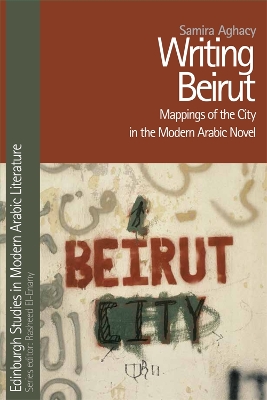This book takes a geographical/spatial approach to Beirut seeking to understand how the city is imagined in fiction. Exploring the ways in which writers utilise the spaces of the city - joining the factual with the imaginary - this book shows how idiosyncratic perceptions of Beirut are produced, generating an infinite number of Beiruts. The city emerges as interactive, dynamic and historical, a place that is created from the streets, buildings, and monuments as well as through performance and social interaction. By referring to factual places in Beirut, the novels produce a strong reality effect through a mimetic mode of expression. Simultaneously, these texts reveal that Beirut is an unstable locale that resists fixity and transparency, shifting between the real and imagined, and the quotidian and discursive. Writing Beirut explores the city in 16 Arabic novels focusing on the urban/rural divide, the imagined and idealised city, the city through panoramic views and pedestrian acts, the city as sexualised and gendered, and the city as a palimpsest. While the book focuses on Beirut in Arabic novels, the introduction provides a thorough overview of Beirut in the modern Arabic novel.
It takes an innovative approach to Beirut focusing on the spatial and geographical in a close literary analysis of 16 modern Arabic novels from various parts of the Arab world; shows how Beirut is imagined in fiction and how writers use the spaces of the city and draws on sources from the field of geography and space including Foucault, Lefebvre, de Certeau, Sja and Rose.
- ISBN13 9780748696246
- Publish Date 31 March 2015
- Publish Status Active
- Publish Country GB
- Imprint Edinburgh University Press
- Format Hardcover
- Pages 240
- Language English
